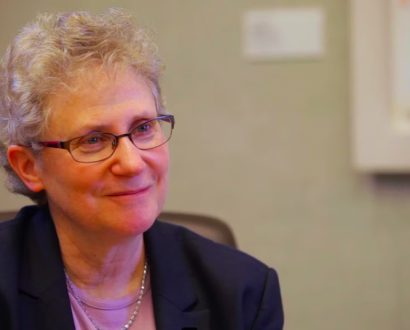Abby J Cohen: Forging your own path through financial markets

A former president of Goldman Sachs’ Global Markets Institute, few financial analysts in the last 30 years have been as respected or influential as Abby J Cohen, whose career even forms the basis of a learning module at Harvard Business School.
The New York-based daughter of Polish immigrants became famous for being one of the few economists to predict the soaring bull market in the early 1990s, leading Institutional Investor to name her the world’s top strategist two years running and Ladies Home Journal to declare she was one of the 30 most powerful women in America.
"Every economist was saying, ‘The good times will continue to roll. The economy is performing well,’" she says.
"But we were hearing entirely different information from our analysts, who said, ‘Things are not looking so good, orders are being canceled, inventories are going up because companies can’t sell what they have.’ We came up with a conclusion that was out of the consensus but turned out to be correct."
Closing the gender gap
Since retiring from Goldman Sachs, Cohen, who is a Ducere Global Leader Faculty Member, has become an in-demand speaker on leadership, investment policy and closing the gender gap in financial institutions.
"There are stories l can tell about being barred from clubs where I’d been invited to be the dinner speaker, and the doorman wouldn’t let me in because he said, ‘We have no women members,’" she says.
"In retrospect, it’s laughable, but what’s more concerning today is that we don’t know if a particular woman or member of a minority group is being given equal access to business opportunities, or whether they’d have been more successful had they been a member of the dominant gender or race in that industry."
"It’s important to be intellectually honest and admit when new factors make you realize you’ve made an error."
The theme of many of her business lectures and keynote addresses is the importance of owning up to mistakes and being brave enough to change a deeply-rooted opinion when new facts come to light.
"Something that’s been helpful to me is a desire to be open-minded and multi-disciplinary rather than always following the same path to reach conclusions," she says. "It’s important to be intellectually honest and admit when new factors make you realize you’ve made an error.
"What I enjoy very much about the investment industry is that there’s very frequent feedback and one can respond to every little bit of information," she continues. "We try to allow the information to amass to the point where it becomes a critical mass before we make changes in our views."
The CEO Magazine is proud to have partnered with Ducere Global Business School to bring our readers career-driven MBA programs. Click here to find out more.